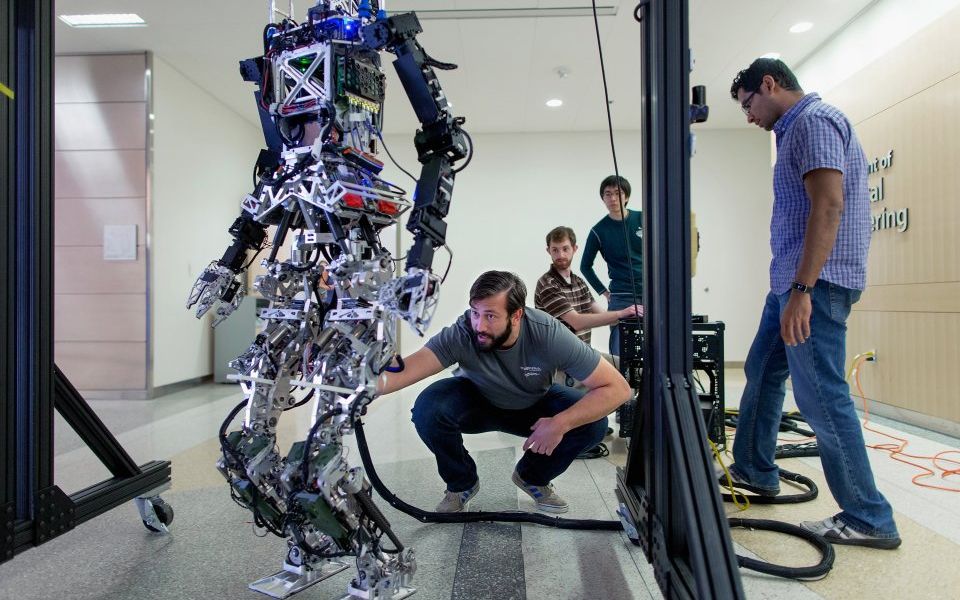Universities and businesses must work together to engineer the recruits of the future

From investment bankers to artisan bakers, employers are constantly on the lookout for bright young employees who are going to help their organisation thrive. Given the present uncertainty, it is more important than ever that British businesses have access to a robust recruitment pool.
The media rhetoric of a growing skills gap suggests that we are seeing an ever-increasing gulf between the requirements of businesses and the abilities (and ambitions) of entry-level candidates.
I am sure that we all hope for a situation where the graduate pool overflows with well-trained, motivated young adults, who are hungry and passionate to enter the professional world.
Read more: Winning HS2 bidder has to develop generation of UK engineering skills
Unfortunately, I don’t think this is currently the case.
Where does the blame for this lie? Within the education system, with businesses, or with the students themselves? The answer is, sadly, all of the above.
But fear not, because there are ways in which companies can improve their access to talent.
From personal experience, I have found that society does not fully understand the function and role of many economically-important professions. Take my own sector, engineering. When speaking to children and parents alike, I’m dismayed to find that they think we mend photocopiers and washing machines, and that buildings are solely constructed by builders. It’s an inaccurate viewpoint that falsely presents the profession as a blue-collar career prospect.
Consequently, I find that many parents steer their children away from engineering, as they see the career path as one with a dead end.
If schools are not equipped with the knowledge or ability to communicate the many benefits of such a career, then it’s little surprise that parents will be uninformed. We need to ensure a constant dialogue with our educators in order to foster a better understanding of our professions.
This can be achieved in simple ways. For example, by engaging with local schools and speaking to teachers and pupils, the former will be better equipped to communicate the benefits of a chosen profession, and inspire the latter to consider it as a career path.
At a higher level, there is an overdependence on graduates with a narrow set of criteria, limiting the amount of employable candidates. Essentially, you are creating highly-defined round holes with not enough appropriately-shaped pegs to fill them.
Universities don’t help with this. Fundamentally, they are a process of educating students to get degrees. Using engineering as an example, experience tells them that students with good A-Level results in maths and physics will statistically be the most desirable.
What happens is that universities only attract kids from a pool of about 30,000, and deny themselves access to the 650,000 or so A-Level students who might also make great engineers.
Perceptions need to change.
What makes the ideal employee? Is it what’s written on paper, or is it something harder to measure, such as personality and creativity? We need to present these questions to the arbiters of higher education to encourage more variety in the recruitment pool.
My view is that universities must be braver in their approach, but businesses need to offer them more support and constructive feedback to ensure this. It’s about getting your company into university career fairs, into subject departments, and the wider student media – selling yourself directly to a non-traditional audience.
Ultimately, UK industries needs to shout louder in the education system as a whole, or we risk a future skills deficit of insurmountable proportion.
It takes dedication and discipline to cut through misconceptions. Once you do, you will find a recruitment pool full of great employment potential.
Read more: New PwC recruits to set own hours under flexible working scheme